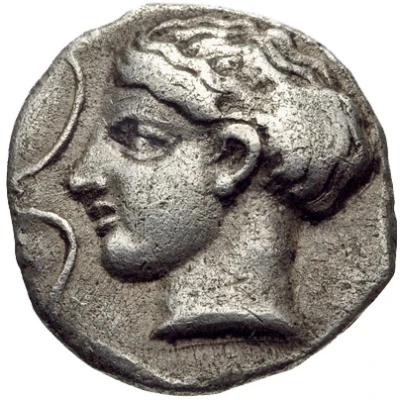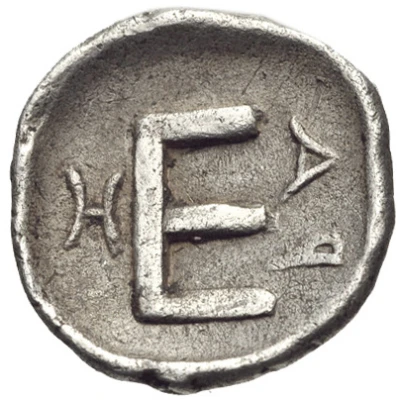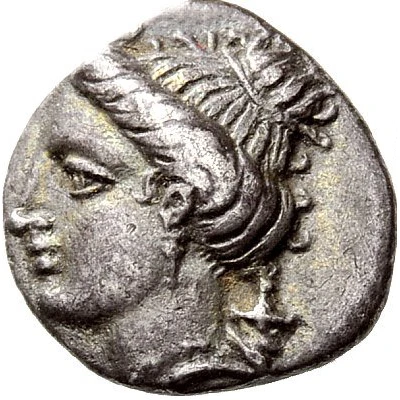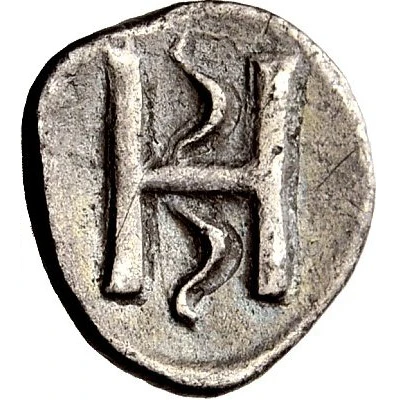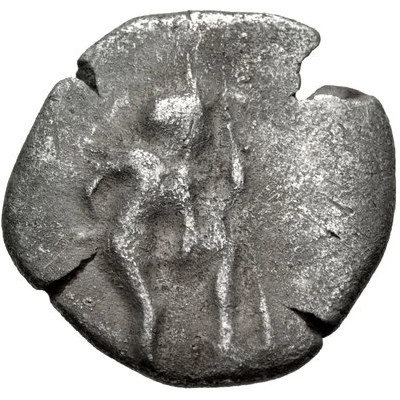
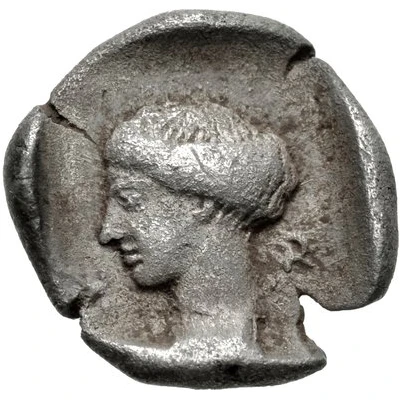

© Classical Numismatic Group, Inc.
Obol 425 BC - 375 BC
| Silver | 0.94 g | 11.5 mm |
| Issuer | Heraia (Arkadia) |
|---|---|
| Type | Standard circulation coin |
| Years | 425 BC - 375 BC |
| Value | Obol (⅙) |
| Currency | Drachm |
| Composition | Silver |
| Weight | 0.94 g |
| Diameter | 11.5 mm |
| Shape | Round (irregular) |
| Technique | Hammered |
| Demonetized | Yes |
| Updated | 2024-10-09 |
| Numista | N#144628 |
|---|---|
| Rarity index | 100% |
Reverse
Head of Artemis facing left with H-R flanking her neck. All within incuse square
Comment
BCD Peloponnesos –; HGC 5, –; BMC 16, pl. XXXIV, 12; Traité III 1011 [1012], pl. CCXXVIII, 13; MG p. 191, 203.
Interesting fact
The Obol coin was used as a form of currency in ancient Greece, specifically in the city-state of Heraia (Arkadia) during the 4th century BC. The coin features an image of a young woman, believed to be the goddess Hera, on one side, and a stylized lion on the other. The lion was a symbol of the city-state and represented its strength and power. The coin was made of silver and weighed approximately 0.94 grams, making it a valuable and highly sought-after form of currency during its time.
